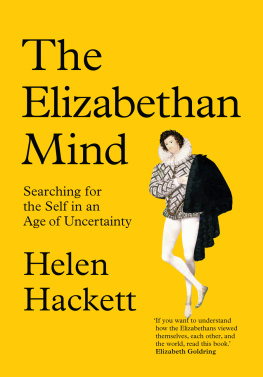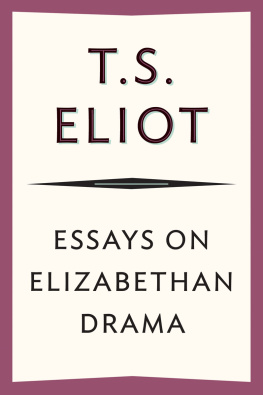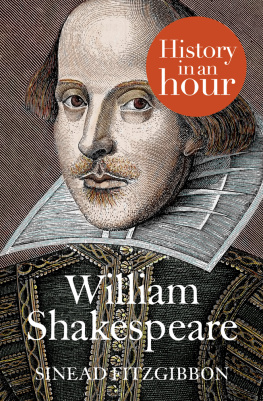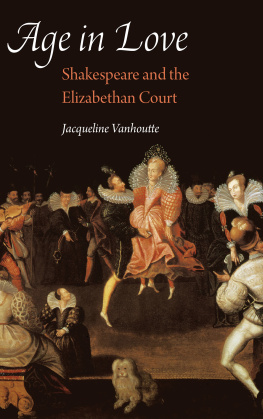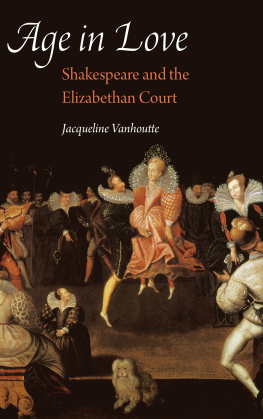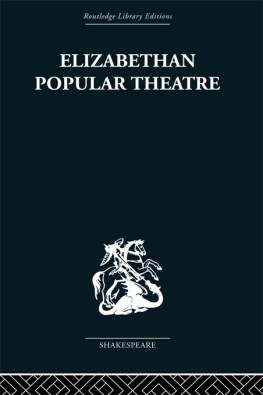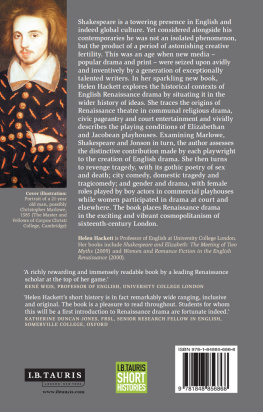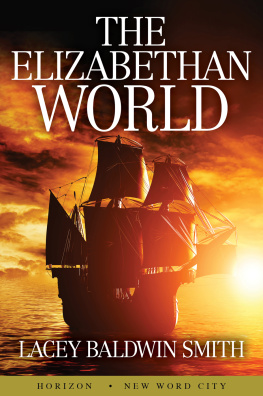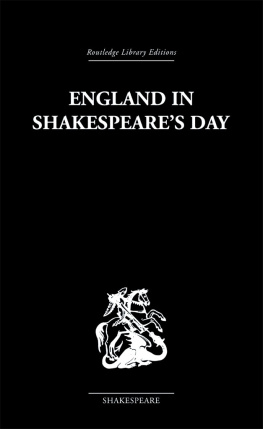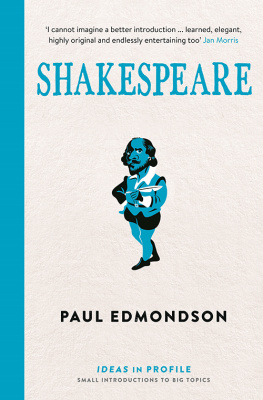THE ELIZABETHAN MIND


Published with assistance from the foundation established in memory of Oliver Baty Cunningham of the Class of 1917, Yale College.
Copyright 2022 Helen Hackett
All rights reserved. This book may not be reproduced in whole or in part, in any form (beyond that copying permitted by Sections 107 and 108 of the U.S. Copyright Law and except by reviewers for the public press) without written permission from the publishers.
All reasonable efforts have been made to provide accurate sources for all images that appear in this book. Any discrepancies or omissions will be rectified in future editions.
For information about this and other Yale University Press publications, please contact:
U.S. Office:
Europe Office:
Set in Adobe Caslon Pro by IDSUK (DataConnection) Ltd
Printed in Great Britain by TJ Books, Padstow, Cornwall
Library of Congress Control Number: 2022931856
e-ISBN: 978-0-300-26524-8
A catalogue record for this book is available from the British Library.
10 9 8 7 6 5 4 3 2 1
CONTENTS
ILLUSTRATIONS
ACKNOWLEDGEMENTS
H eartfelt thanks are due to many people who have helped to bring this book to fruition. Heather McCallum of Yale University Press planted the seed and has patiently nurtured the book to completion, giving much sage guidance along the way. Marika Lysandrou, Katie Urquhart, Felicity Maunder, and Lucy Buchan of Yale have also been tirelessly helpful in bringing the book to publication, and Robert Shore has been an assiduous and exemplary copy-editor. Two anonymous readers for Yale gave invaluable advice.
The Leverhulme Trust generously granted a twelve-month Research Fellowship which was vital to completion of the book. Stephen Cadywold and Steve Morrison gave expert help with the funding application, while Lucy Razzall provided excellent cover for my teaching and other departmental duties during the Fellowship. Thanks are due to the UCL English Department for two terms of research leave during the period of work on the book, especially to those colleagues who covered teaching and administrative duties that would otherwise have fallen to me. My students and colleagues at UCL have been a constant source of stimulation and inspiration over many years. Im especially grateful to members of the Early Modern English Reading Group (EMERG) and its organisers, Harvey Wiltshire, Luke Prendergast, Kate Kinley, and Fraser McIlwraith.
For help with research materials, my thanks go to the staff of the British Library; the Oxfam Bookshop, Muswell Hill (especially Sam Golding); the Senate House Library of the University of London; the UCL Library (especially Sarah Burn); UCL Special Collections (especially Gill Furlong, Dan Mitchell, and Mandy Wise); and the Warburg Institute Library. I benefited enormously from opportunities to present work-in-progress at venues including the Literary Society, Fitzwilliam College, Cambridge; Early Modern Voices: A Symposium for Alison Thorne, University of Glasgow; the 2018 conference of the Italian Association of Shakespearean and Early Modern Studies at the Universit degli Studi di Cagliari, Sardinia; the Early Modern Research Seminar, English Faculty, Oxford University; the Literature and History Seminar, Oxford University; the Department of Linguistic and Literary Studies, Universit degli Studi di Padova; Elizabeth I, 15882018: The Armada and Beyond, the Queens House conference 2018, Greenwich; and the Womens Studies Group 15581837.
This book would not exist without the many kinds of generous help and support received from Katherine Duncan-Jones, Karen Hearn, Mary Ellen Lamb, Neil Rhodes, and Henry Woudhuysen. My debts to them are profound. For taking the time and trouble to read draft materials, Im grateful to Shani Bans, Douglas Clark, Susan Doran, Angus Gowland, Antonia Hamilton, Sarah Howe, Paulina Kewes, Dana Key, Eric Langley, John Mullan, Alison Shell, Chris Stamatakis, Ren Weis, and Emma Whipday. The book has been greatly improved by their comments and counsel, though any remaining errors and deficiencies are of course my own responsibility. Expert assistance on particular topics was kindly given by Eoin Bentick, Stella Bruzzi, Marilyn Corrie, Katharine Craik, Gregory Dart, Avital Hahamy, Rachel E. Holmes, Simon Jackson, Conor Leahy, Tess Lowery, Kate Maltby, Barret Reiter, Neil Rennie, and Simone Webb. Special mention must go to Shani Bans, Dana Key, and Chris Stamatakis for leading me to invaluable research materials, and to Margaret Healy, Chris Laoutaris, and Sasha Garwood Lloyd for showing me ways into early modern medical humanities. Many different kinds of assistance have been given by Kathryn Allan, Alison Findlay, Susan Irvine, Norman Jones, Alison Light, Katie McKeogh, Alexander Samson, Lindsay Smith, Brian Vickers, and John Watkins.
I have been sustained by the interest and encouragement of my family and friends, especially Lisa Clifford, Jeri McIntosh, John Davis, Dermot Doughty, Belinda Fox, Judith Tew, and Peter Tyler. Some work on the book was done while enjoying the generous hospitality of Paul Hackett and June Hammond at their house in France. The hard work over many years of Birute Gelumbauskiene freed me from domestic tasks and provided me with a comfortable working environment.
My greatest debts, as ever, are the hardest to express. My children, Ed and Marina Hackett, read parts of the book, had many conversations about others, and gave much sage advice. My husband, Stephen Hackett, has read every word of the book and has lived with it for longer than either of us expected. He has been on holiday with it many times (uncomplainingly) and has been locked down with it during Covid restrictions. Throughout the books gestation he has sustained me with delicious food and drink, long walks, long talks, and everything else a person could need. By now he probably feels that he has an Elizabethan mind. The book could not be dedicated to anyone but him. For Steve, with love (and apologies).
A NOTE ON THE TEXT
A ll quotations from the Bible, unless otherwise stated, are from The Geneva Bible: A Facsimile of the 1560 Edition, introduced by Lloyd E. Berry (Madison: University of Wisconsin Press, 1969). All references to the Oxford Dictionary of National Biography (ODNB) are to www-oxforddnb-com.libproxy.ucl.ac.uk. All references to the Oxford English Dictionary (OED) are to www-oed-com.libproxy.ucl.ac.uk. All references to Shakespeares works, unless otherwise stated, are to The Norton Shakespeare, 3rd edn, International Student Edition, gen. ed. Stephen Greenblatt (New York: Norton, 2016).
For personal names that have variant spellings, I have consulted the ODNB and Early English Books Online (EEBO, proquest.com/eebo), then chosen the most appropriate form according to my own judgement. Variant forms are given in parenthesis where helpful for reference. Titles of early printed books are modernised in the main text but given in their original form in the Bibliography (where very long titles are shortened as appropriate) and notes (in short form). Where appropriate, dates are given in the form CE (Common Era) or BCE (Before Common Era). All dates of plays after 1533, unless otherwise stated, are the best guesses given in Martin Wiggins with Catherine Richardson, British Drama 15331642: A Catalogue, 9 vols (Oxford: Oxford University Press, 201118).
Spelling in quotations from early or unmodernised editions has been modernised, and punctuation has been lightly modernised if necessary for clarity. However, Edmund Spensers idiosyncratic spelling in his poetry has not been modernised, in accordance with standard convention. Glosses of obsolete terms are given in square brackets, and are based on
Next page
